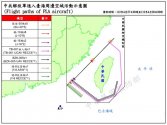In4ser
Junior Member
China can create an effective blockade by destroying all of Taiwan’s military assets, shipping ports and landing strips. It can then enact an actual blockade. Should the US intervene, the PLAN withdraw behind Chinese air cover and coastal defenses.
Once down sight of its long ranged missiles and other assets, China could bombard the US navy at will. If the first few waves of D-21s and YJ-12, do not sink all of the USN. China can simply keep making more and keep firing until all of the USN’s ships are gone. China will overwhelm the USN’s defense if not by quality, then by sheer quantity of projectiles.
The main problem with the US planning is thinking this will be a quick battle. China can drag out the conflict like Russia is doing in Ukraine. Even if much of the USN fleet is intact, they still need food, fuel and ammo so will either need to push forward and attack the Chinese coastline (and deal with a higher concentration but shorter ranged Chinese firepower), stay and get sniped or allow the PLA reimpose a blockade when they retreat to replenish themselves. But if they do replenish and come back, China just needs to rinse and repeat and the logistics of the operation will make it too much for the US to handle as new ships takes years to build, days to transport and America already has an ammo stockpile problem.
Meanwhile China will not stop ramping continue missile and drone production to prepare future volleys targeting US and allied assets from afar. Eventually the damage and costs of such an intervention untenable and allow a Chinese counter by securing Taiwan and possibly Guam as well.
Once down sight of its long ranged missiles and other assets, China could bombard the US navy at will. If the first few waves of D-21s and YJ-12, do not sink all of the USN. China can simply keep making more and keep firing until all of the USN’s ships are gone. China will overwhelm the USN’s defense if not by quality, then by sheer quantity of projectiles.
The main problem with the US planning is thinking this will be a quick battle. China can drag out the conflict like Russia is doing in Ukraine. Even if much of the USN fleet is intact, they still need food, fuel and ammo so will either need to push forward and attack the Chinese coastline (and deal with a higher concentration but shorter ranged Chinese firepower), stay and get sniped or allow the PLA reimpose a blockade when they retreat to replenish themselves. But if they do replenish and come back, China just needs to rinse and repeat and the logistics of the operation will make it too much for the US to handle as new ships takes years to build, days to transport and America already has an ammo stockpile problem.
Meanwhile China will not stop ramping continue missile and drone production to prepare future volleys targeting US and allied assets from afar. Eventually the damage and costs of such an intervention untenable and allow a Chinese counter by securing Taiwan and possibly Guam as well.
Last edited:

